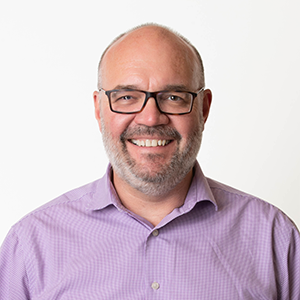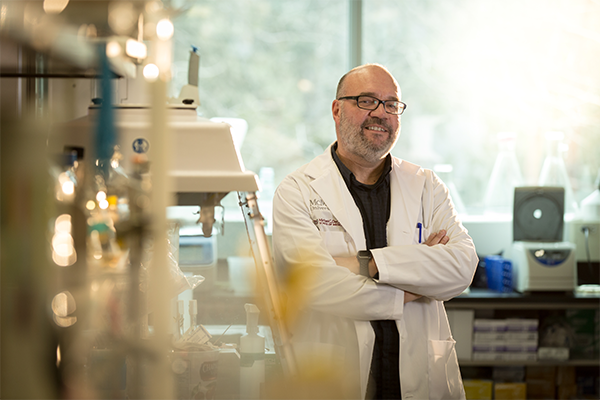Gerry Wright, Executive Director for Canada’s Global Nexus for Pandemics and Biological Threats and Professor at the Department of Biochemistry and Biomedical Sciences at McMaster University, Canada, is the guest of honour at this year´s Göran Gustafsson symposium. The theme of the symposium is antibiotic resistance focusing on joint actions towards sustainable solutions. The research interests of Gerry Wright´s lab ranges from the evolution and molecular mechanisms of antibiotic resistance to the discovery of new molecules with antibiotic activity that may be future drugs.

Canada. Photo: Georgia Kirkos.
“My group has been deeply interested in the origins of antibiotic resistance genes, which consensus indicates lie in the vast reservoir of environmental microorganisms, and how these genes may be mobilized into human and animal pathogens,” says Wright.
“We are also very interested in identifying ways to inhibit antibiotic resistance mechanisms to rescue our existing drugs and identify combinations of antimicrobial compounds that may suppress the emergence of resistance,” continues Wright. “Our highly multidisciplinary approach includes bioinformatics, mechanistic enzymology, protein structure and function, natural product chemistry, and synthetic biology.”
New antimicrobial agents produced by environmental bacteria
As Göran Gustafsson lecturer and keynote lecturer, Gerry Wright, Professor of Biochemistry and Biomedical studies, will discuss how we can use resistance to guide the discovery of new antimicrobial agents produced by environmental bacteria. These organisms produce antimicrobial compounds through dedicated genetic programs called biosynthetic gene clusters.
“To ensure that the microorganisms do not self-intoxicate when making such compounds, they often have embedded resistance genes in the biosynthetic gene cluster,” says Wright. “The presence of such resistance genes can inform on the molecular target of the produced compound. Conversely, the absence of known resistance genes can predict the production of an antibiotic with a novel mode of action. I will present examples of both of these strategies.”
The significance of international collaboration on antibiotic resistance research
Antimicrobial resistance is an existential threat to modern medicine. Paradoxically we may be at the lowest point of research on new antibiotics in many years. This creates many challenges for researchers and affects international co-operation between them.
“The challenges are very significant,” explain Wright. “They include economic barriers that make new antibiotic discovery and development using traditional market-based return on investment unattractive. International cooperation at the level of countries is essential to solve these financial barriers.”
“But it is not just about money. The science of antibiotic discovery and development is extremely difficult, and no one institute or country has all the solutions. We must work together to share our ideas, successes, and failures to ensure that generations in the future have access to antibiotics and the benefits they bring to human and animal health.”
New methods that leverage genomics, metabolomics, synthetic biology, and high throughput biology.
Despite the challenges of antibiotic resistance research, Gerry Wright is very optimistic about the future. The traditional brute force screening of environmental microbes that yielded the antibiotic drugs available today has been eclipsed by new methods that leverage genomics, metabolomics, synthetic biology, and high throughput biology.
“Although there are difficulties in bringing new antibiotic drugs to patients in 2023, the research has never been more exciting and vibrant. The field is taking full advantage of advances emerging from the genomic era, and it's a tremendously exciting field in which to build a career.”
“I'm very much looking forward to travelling to Sweden and the Göran Gustafsson symposium and interacting with my colleagues and also with students and young researchers who're interested in this field. Upsala and Sweden as a country have outstanding and well-deserved reputations as sites of innovative, cutting-edge research in antibiotic resistance and discovery,” concludes Wright.
